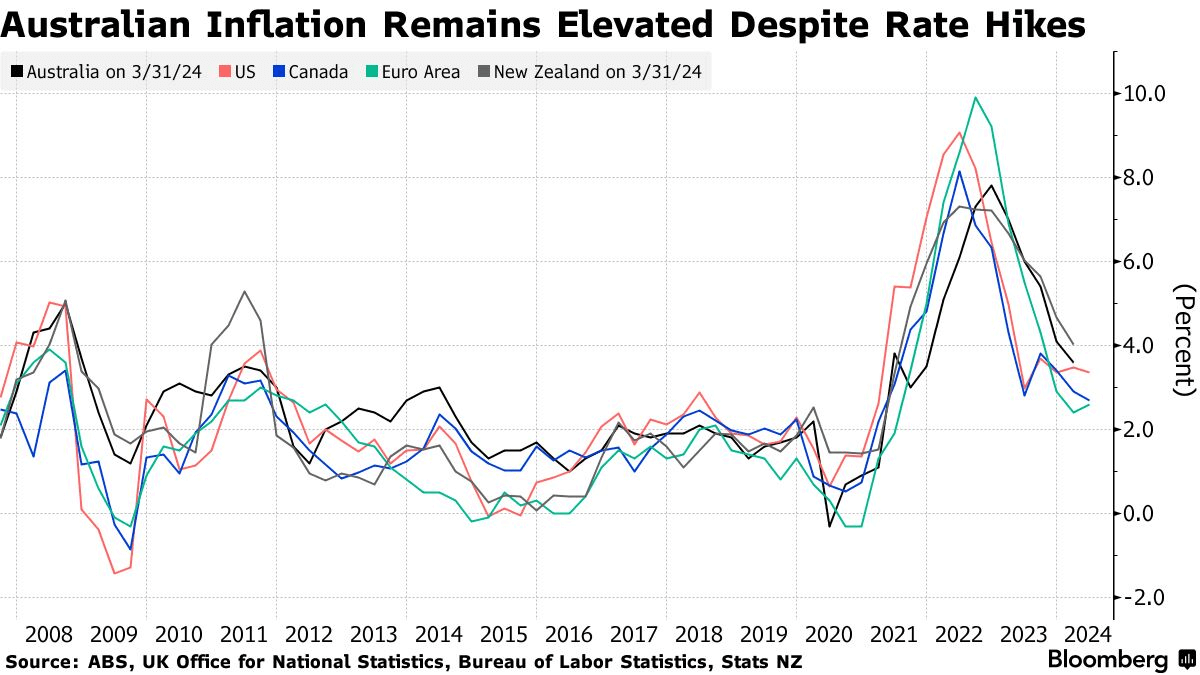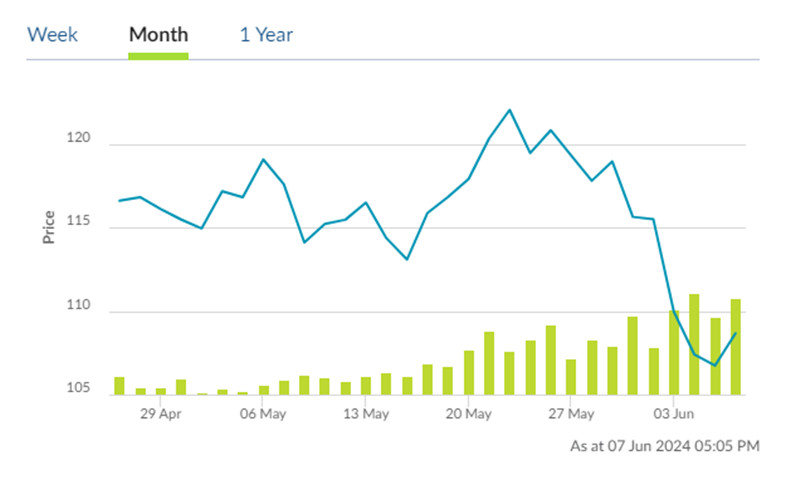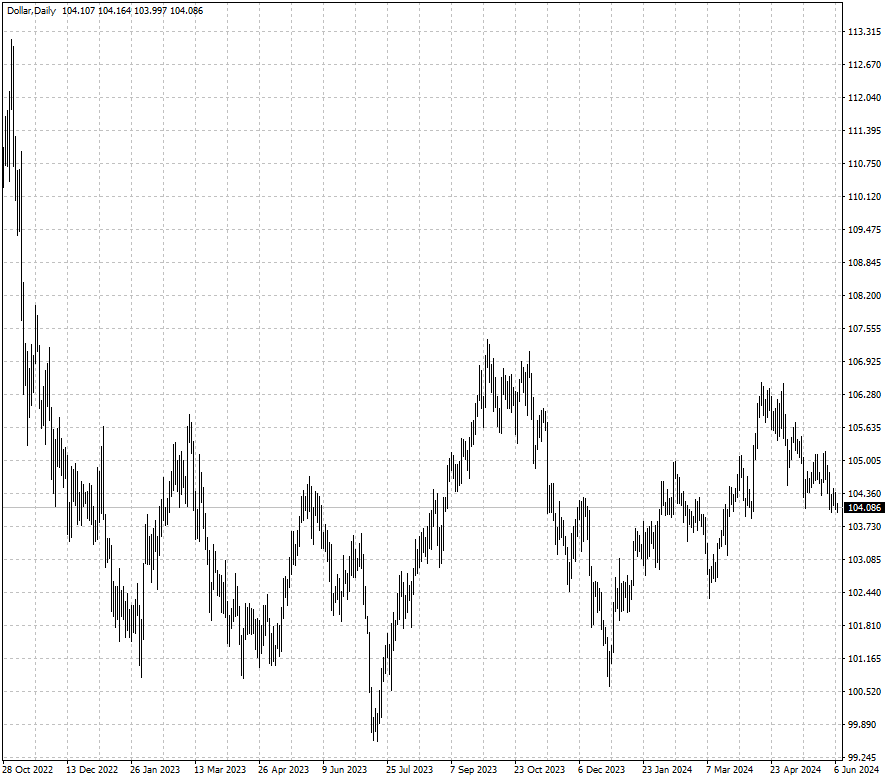The australian dollar has made headway over the past month after a brutal
start to the year, in line with our forecast. But lacklustre economic growth is
acting as a drag on the currency.
Australia's GDP all-but stalled in the first three months of the year as
elevated interest rates and cost of living pressures weighed heavily on
households and broader activity.
The increase of 0.1% from the prior quarter missed estimates. Furthermore,
the annual reading was the worst after the pandemic ended with essential
spending outpacing discretionary consumption.
Australia's surplus on trade goods rebounded in April due to declining
imports, data showed. Exports fell to the lowest since late 2021 as prices and
volumes of iron ore and coal both eased.

The slowdown comes as inflationary pressures remained stubbornly high.
Consumer price index rose to a five-month high of 3.6% year-on-year in April,
greater than the 3.4% gain forecast.
The report was heavily skewed towards goods and did not capture price changes
for a range of services. Australia still suffers the highest inflation rate
among the world's largest advanced economies.
The RBA expects headline inflation to pick up to 3.8% by June this year, but
the hope is that the new relief from the government would help ease the
cost-of-living pressures in the second half.
After UK
The RBA may have no choice but to resume raising interest rates this year,
according to money markets, setting it up as a potential outlier to a
post-pandemic global tightening cycle that has ended.
Traders have trimmed bets on a rate cut this year to a 25% chance from a
one-in-three probability prior to the GDP release. A cut is not fully priced in
until the first half of 2025.
Policymakers have kept the benchmark rate on hold for six months. Their
patience most economists anticipate that the will keep rates higher for longer,
rather than hike again.
Governor Michele Bullock reiterated she had not ruled anything out. Deputy
Governor Andrew Hauser said that cooling price pressures was the "first and
predominant challenge."
Hauser was the executive director of markets at the BOE. Coincidentally, the
central bank also grappled with signs of stagflation earlier and then navigated
the predicament by just sitting around.
However, it is not a given that the RBA will worm its way out of that
effortlessly like its British peer. China's housing slump is into its third
year, raising the question of steel demand.

Iron ore future hit a seven-week trough this week. The consumption shrank
along with falling hot metal output, while portside stocks continued to pile up,
analysts at Huatai Futures said in a note.
King dollar
The greenback's relentless strength in the recent past will make way for
minor weakness over the next 12 months, according to FX strategists in a Reuters
poll, who generally agreed the dollar was overvalued.
Much of that resilience is down to interest rates staying higher for longer.
At the beginning of the year, forecasters and financial markets had predicted
the Fed would have cut rates soon.

A separate Reuters poll showed inflation averaging above the Fed's target at
least until late 2025, suggesting the risk was the dollar would remain strong
for an extended period.
"When the Fed starts to cut, the dollar is likely to remain relatively firm.
It's not going to give back an awful lot of this year's gains and it's going to
remain overvalued," said Jane Foley, head of FX strategy at Rabobank.
The number of central banks seeking to increase their exposure to the
currency has increased sharply this year against the dedollarisation trend,
according to a OMFIF's report.
The survey said short-term factors seemed to be driving the renewed demand
for dollars, including expected higher returns from the US, where rates are
forecast to remain higher than other major economies.
That could pose another challenge to the Australian dollar which is under
pressure of the sore spot in China's recovery. The currency could hardly power
forward until the Fed's rate cuts are convincing.
Disclaimer: This material is for general information purposes only and is not
intended as (and should not be considered to be) financial, investment or other
advice on which reliance should be placed. No opinion given in the material
constitutes a recommendation by EBC or the author that any particular
investment, security, transaction or investment strategy is suitable for any
specific person.









